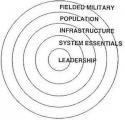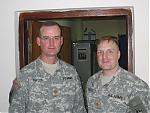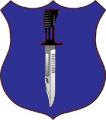I had a "disposable" TACMAV UAV (similar to Wasp) go down in Tal Afar. Required to send a patrol out to find it. They couldn't, so I called the sheiks of the area where we thought it went down and offered $50 to anyone who turned it in.My BCT CDR said it saved me a $10k survey, because I didn't have approval to fly it yet.
It showed up at the front gate to my COP an hour later from a kid. I paid the $50 out of pocket. I guess it looked like a toy plane to them. Funny thing was it became a MNC-I SIGACT, since ANY UAV loss was a CCIR at the time, even a small one.





 "A Sherman can give you a very nice... edge."- Oddball,
"A Sherman can give you a very nice... edge."- Oddball, 







Bookmarks